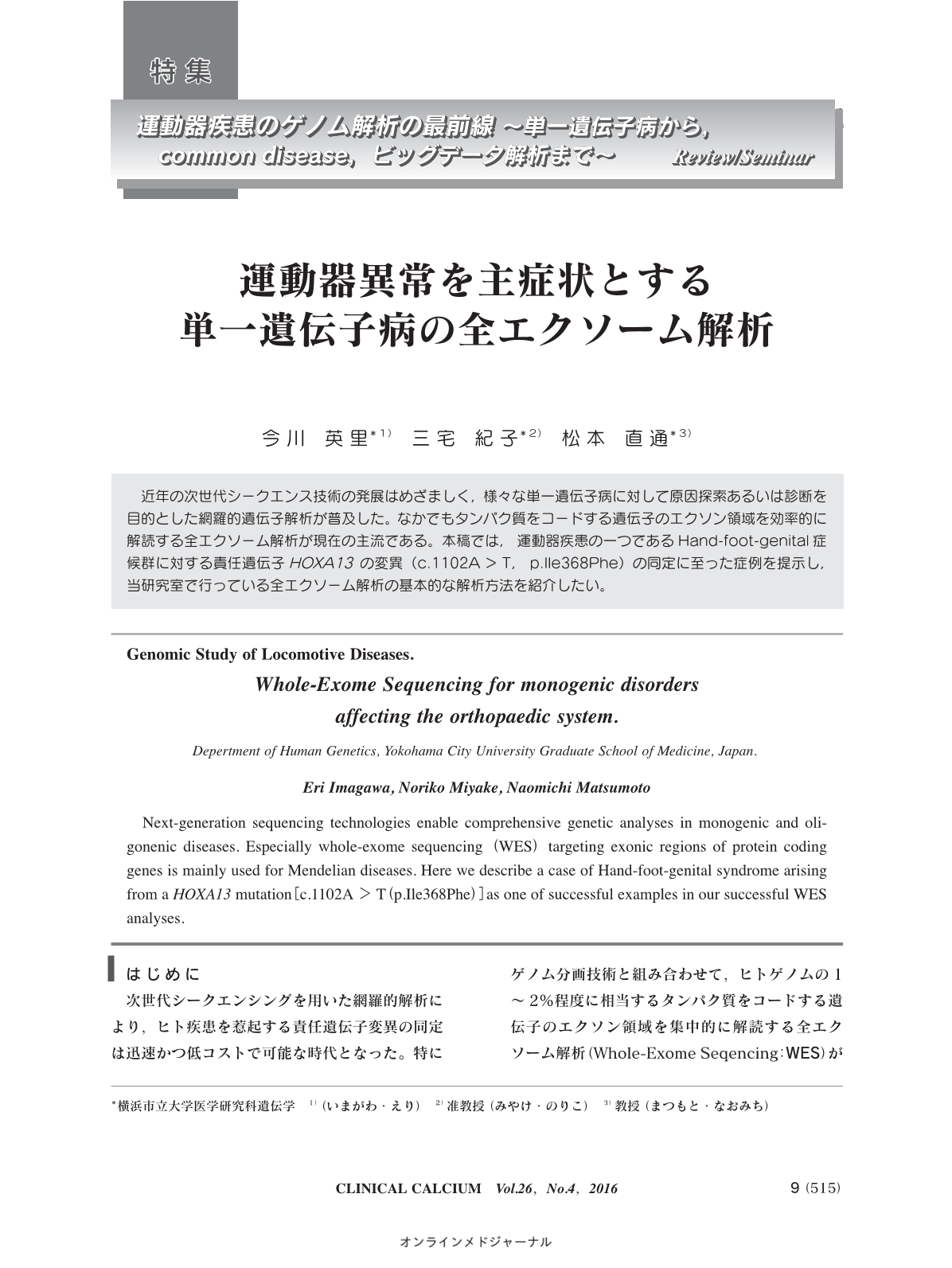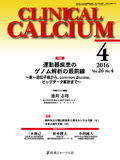Japanese
English
特集 運動器疾患のゲノム解析の最前線 ~単一遺伝子病から,common disease,ビッグデータ解析まで~
Review/Seminar
運動器異常を主症状とする単一遺伝子病の全エクソーム解析
Genomic Study of Locomotive Diseases. Whole-Exome Sequencing for monogenic disorders affecting the orthopaedic system.
今川英里
1
,
三宅紀子
2
,
松本直通
3
Imagawa Eri
1
,
Miyake Noriko
2
,
Matsumoto Naomichi
3
1横浜市立大学医学研究科遺伝学
2横浜市立大学医学研究科遺伝学・准教授
3横浜市立大学医学研究科遺伝学・教授
1Depertment of Human Genetics, Yokohama City University Graduate School of Medicine, Japan.
2Depertment of Human Genetics, Yokohama City University Graduate School of Medicine, Japan.
3Depertment of Human Genetics, Yokohama City University Graduate School of Medicine, Japan.
pp.515-523
発行日 2016年3月28日
Published Date 2016/3/28
DOI https://doi.org/10.20837/4201604009
- 有料閲覧
- Abstract 文献概要
- 1ページ目 Look Inside
- 参考文献 Reference
近年の次世代シークエンス技術の発展はめざましく, 様々な単一遺伝子病に対して原因探索あるいは診断を目的とした網羅的遺伝子解析が普及した。なかでもタンパク質をコードする遺伝子のエクソン領域を効率的に解読する全エクソーム解析が現在の主流である。本稿では, 運動器疾患の一つであるHand-foot-genital症候群に対する責任遺伝子HOXA13の変異(c.1102A>T, p.Ile368Phe)の同定に至った症例を提示し, 当研究室で行っている全エクソーム解析の基本的な解析方法を紹介したい。
Next-generation sequencing technologies enable comprehensive genetic analyses in monogenic and oligonenic diseases. Especially whole-exome sequencing(WES)targeting exonic regions of protein coding genes is mainly used for Mendelian diseases. Here we describe a case of Hand-foot-genital syndrome arising from a HOXA13 mutation[c.1102A>T(p.Ile368Phe)]as one of successful examples in our successful WES analyses.



